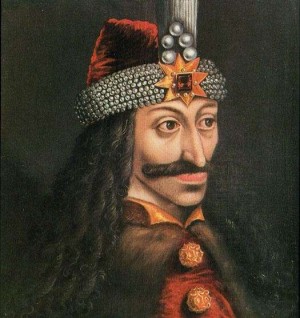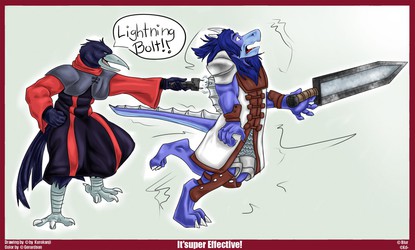Sign In
CloseSecond day of the Short Story Challenge Week. The word given to me was Tepes and it was given to me by Kishniev. https://www.weasyl.com/~kishniev
Ţepeş is the cognomen of one Romanian hero, Wallachian ruler who was known as Vlad Dracula (son of the Devil, or son of the Dragon). He came known as Vlad Ţepeş for his sadism, cruelty and tendency to impale people... especially ottomans.
He is a very appreciated national hero around here.
This is a fictional tale, with fictional elements.
Enjoy this story! I aimed for a bit more horror influence.
Submission Information
- Views:
- 673
- Comments:
- 6
- Favorites:
- 1
- Rating:
- General
- Category:
- Literary / Story
Comments
-
-

Nice job. As this is supposed to be writing practice, I'll try to give some critique. :)
The Muslem narrator could use some words related to his religion. He could mention Allah, pray to him, or try to compare the Light of Islam with the unholy djinns and Sheitan's madness. Things like that make the character seem more real.
The places narrator and his men visited could have names. Not just 'woodland' or 'village'. If the story aspires to appear like a real historical document, Ayberk Boran would mention: "We have crossed Danube at Nikopol, then marched for days until we reached Sibiu." Small realistic details like that give kind of a documentary quality to a story, which makes it even more frightening.
I feel you could've done more about the horror scenes. Sure, in the 19th century such a graphic story would probably be banned. But in this time and age mere blood and gore isn't enough. Psychological horror needs to be employed. Narrative tricks need to be used. Losing one's mind is better to be shown than told.
The bigger picture. How Ayberk Boran escaped from the hell valley? Where is he now? Where is he going after he finishes this diary? The story would need some wrapping up before you could regard it complete.
Either way, it's a good starting point. Hope it helps!
-

Worthy points that I will definitely keep around and remember when performing bigger narratives, like novellas or novels where I can dash into the glory of details.
For two, I admit I was reluctant in giving names to the visited places, solely because that would present a thin line between historical authenticity (which would achieve what you suggested) and ludicrousness by presenting facts which... weren't in fact facts ))). I thought it better, at that time, to focus on fiction through ambiguity.
Ahhhh... To be honest, I did not aim for gore, but a progression of tension culminated with one shattering revelation. Well... Obviously something that needs honing and perfecting, considering that attempt was hidden by the gore descriptions at the end.
May I assume "ambiguity" or "obscurantism" isn't well received nowadays anymore? Or maybe I need to convey it more elegantly?
Your critique is well appreciated. Will prove to be introspective once I get on working on bigger works (when I will have the time) and be able to dedicated myself to more grandiose pursuits. But this, for something written in 2 hours to complete a daily challenge as well as receive some succulent feedback, I call it decent :D
-

It was just my personal preference to favor clarity and compactness over ambiguity. ;)
But for two hours work it's really more than decent, yes!
-

Hmm, it is a preference I share with you occasionally, I must admit. I do enjoy the meticulous work of building a world to the finest, littlest detail, or describing things in such a manner.
But I also like reserving room for ambiguity, for mystery in order to strive for a form of interaction with the reader, to allow him the room to assume, guess, suppose, to engage himself with the story and by doing so, immerse himself, and feel a culminating tension as he struggles to discover whether he was right or wrong.
I snicker trying to think how these two would play together in a Sci-Fi work, where you have the liberty of shaping the cosmos, and the numerous worlds however you life, while also dealing with the mystery of the void and all that lurks inside it.
-





Link
Scheknul
Looks like Vlad The Impaler.